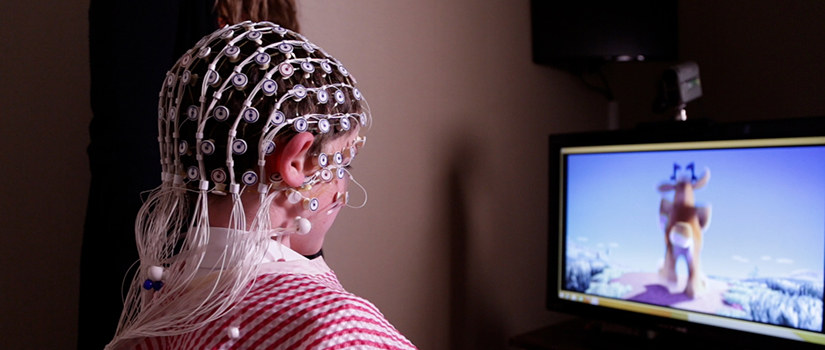The Ann Johnson Institute for Science, Technology and Society builds diverse communities for the study of technology, medicine and science in past and present societies. It fosters collaboration across colleges and programs to bring together scientists, humanists and members of the medical profession.
Learning to care for our incredible coast requires a hands-on approach. That’s why, in addition to our lab facilities in Columbia, we study in our 17,500-acre living laboratory at the coast.
Explore the core ideals and values that have shaped American history and prepare students for success in careers and civically engaged lives.
We connect researchers across the University of South Carolina to advance research and practices that enhance the behavioral health of students across the state.
The Center for Bioethics serves as a locus for interdisciplinary research, education and service in bioethics and the medical humanities, addressing these areas at local, regional and national levels.
The Center for Childhood Neurotherapeutics at the University of South Carolina seeks to discover new ways to treat nervous system diseases and promote neural repair.
A joint initiative of the McCausland College of Arts and Sciences and University Libraries, the center seeks to bring our civil rights history to life and inspire an informed dialogue about today's social justice issues. It preserves, documents and promotes the contributions of the state of South Carolina to the broader American civil rights movement.
By better understanding the contributing factors of water quality from a scientific and socioeconomic standpoint across the state of South Carolina, we seek to help residents and visitors at the state, county and individual level solve current and emerging challenges to sustained sources of clean water.
The Colorectal Cancer Prevention Network (CCPN) is dedicated to reducing incidence and mortality of colorectal cancer through awareness, education, and screening. The network aims to increase screening of medically underserved individuals throughout the state of South Carolina and address the rise in young adult cases of colorectal cancer through a focused clinical education.
RCCWB is an NIGMS/NIH Center of Biomedical Research Excellence (COBRE) focused on prevention research impacting the well-being of children ages 2 to 10, with the dual goal of (1) reducing risk for social, emotional, and behavioral problems, and (2) decreasing unhealthy lifestyle behaviors. As a collaborative venture between the McCausland College of Arts and Sciences and the Arnold School of Public Health, the RCCWB seeks to accelerate the scientific trajectories of promising early-career faculty as prevention scientists.
The center coordinates geography education research and outreach through SCGeo (the South Carolina Geographic Alliance). The center networks K-12 educators with university geographers to create curriculum materials and learning environments where meaningful learning about geography content, methods, and technologies occurs.
The Center for Hierarchical Waste Form Materials' mission is to combine experiments and modeling to develop the chemistry and structure motifs needed to create hierarchical materials that effectively immobilize nuclear waste in persistent architectures.
The Electron Microscopy Center at the University of South Carolina is a core facility providing all levels of technical support and consultation in the area of light microscopy, electron microscopy, and elemental analysis.
Lives and property can be saved if we can learn what a disaster, like a hurricane, will do before it occurs. The HVRI studies planning, responses and works to identify trends in natural disasters.
The History Center nurtures scholarship and engages with the community to promote the historical craft.
The mission of the Humanities Collaborative at the University of South Carolina is to advance interdisciplinary humanistic inquiry by initiating new collaborations and supporting ongoing programs among faculty, students, and members of the public.
Established in 2007 to encourage the scholarly study and public understanding of race and black life, the Institute for African American Research achieved official status from the Board of Directors on April 7, 2009, and on June 17, 2009, from the South Carolina Commission on Higher Education.
Unlocking the mysteries of the mind-brain connection is one of the great scientific challenges of the 21st century. The University of South Carolina is poised to become a world leader in cognitive neuroscience research with the establishment of the Institute for Mind and Brain.
As the state where the Civil War began, South Carolina has always been at the forefront of the history of the American South. The Institute for Southern Studies (ISS) at the University of South Carolina helps tell this important story.
Materials research focuses on discovering and designing new materials by analyzing their structures and behaviors, requiring expertise in physics, chemistry, and engineering. The South Carolina Materials Research Network (SMaRt) fosters interdisciplinary collaboration among USC faculty, other institutions, industry, and government. Through shared resources, joint projects, and outreach, SMaRt advances materials research and its impact on society.
At The McCausland Center, researchers and students explore one of the greatest frontiers in science: the brain.
The NSF Center for Polymers for a Circular Economy aims to develop new ways to make polymers from inexpensive starting materials — carbon dioxide, biomass residues from agriculture and forestry, and oils from food waste. The ultimate mission is to achieve true polymer circularity with materials that can always be recycled.
The Center for Science Education is committed to creating better science educators through training, program development and specialized training.
How has human life and culture evolved over the millennia? To study this crucial question, the South Carolina Institute of Archaeology and Anthropology was established in 1963 as a University of South Carolina research institute and a State cultural resource management agency.
The Walker Institute is home to six minor degree programs that engage students in the interdisciplinary study of world affairs and cross-cultural understanding.
